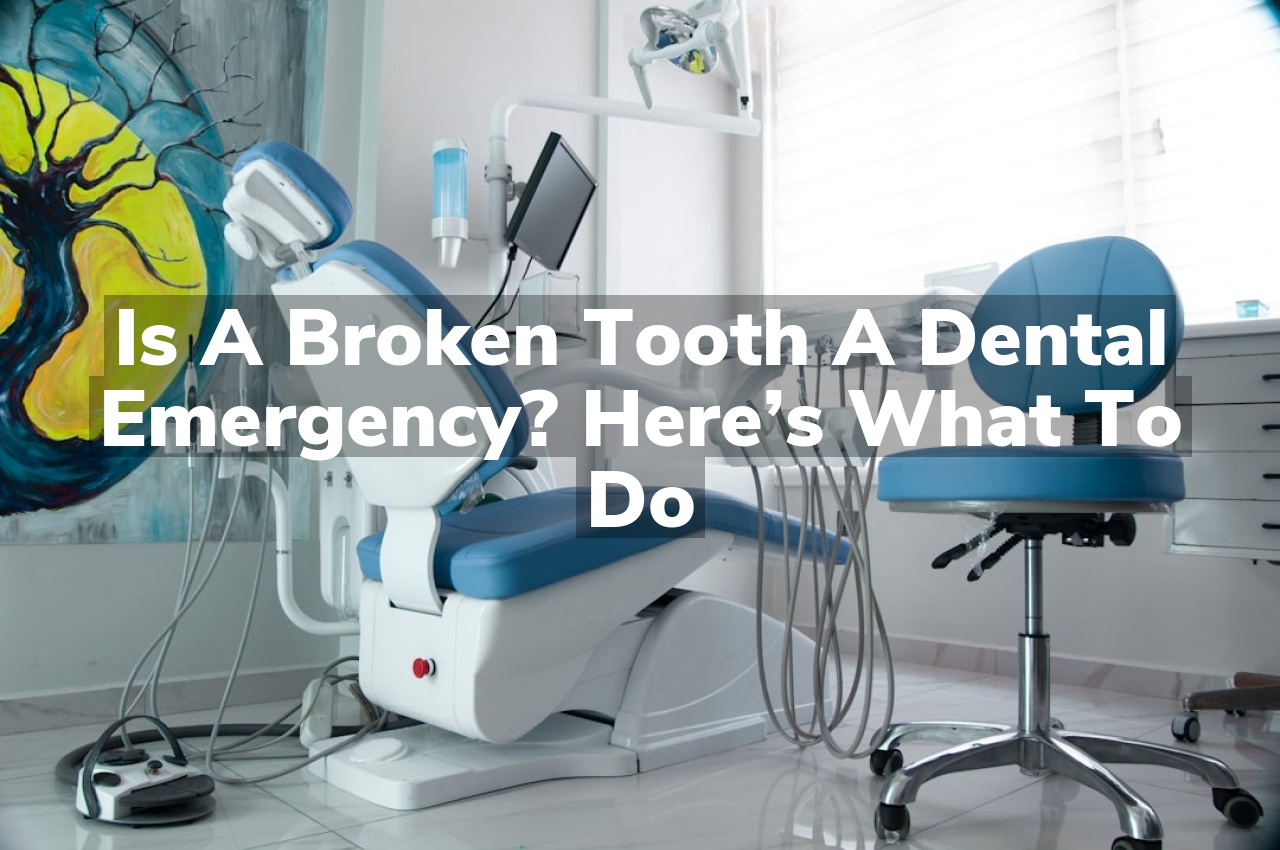Is a broken tooth considered a dental emergency? When it occurs, it’s important to assess the situation calmly as it can vary in severity. Generally, the response involves understanding the extent of the damage and considering the discomfort experienced.
Identifying a Broken Tooth
Recognizing a broken tooth is crucial in determining the appropriate steps to manage your dental health. It can vary in severity from minor chips to significant fractures that expose the tooth’s inner layers. Common signs include sudden pain, especially when chewing or exposed to extreme temperatures, and sometimes visible pieces of the tooth that might be missing. Additionally, sensitivity to sweet, hot, or cold foods can also indicate a fracture.
In some cases, a broken tooth might lead to more serious complications, such as an infection. It’s important to understand the potential risks associated with a damaged tooth. For more detailed information on related risks, you might find it helpful to read about whether Can a Tooth Infection Lead to Hospitalization? Know the Risks. Awareness and prompt attention to dental disruptions are key to maintaining oral health.
Types of Tooth Breaks
Understanding the different types of tooth breaks can help you identify the severity of a broken tooth. Generally, tooth fractures can be classified into several categories, including craze lines, which are tiny cracks on the enamel, and more severe fractures that extend to the tooth’s root. A broken cusp, which typically does not cause much pain, affects the pointed chewing surfaces of the teeth. Conversely, a split tooth or a vertical root fracture, which may occur gradually, can affect both the tooth and the root, leading to more significant issues.
Each type of break varies in severity and impact on dental health, but recognizing the signs of each can be crucial for maintaining oral health. If you suspect you have a broken tooth of any kind, it’s important to assess the situation promptly. For professional evaluation and care, consider visiting Emergency Tooth Care Somers to ensure your dental health is managed appropriately.
Common Causes of Tooth Breakage
A broken tooth can occur for various reasons, often catching individuals by surprise. Common causes include biting down on hard substances, accidents that involve a blow to the mouth, or the natural weakening of teeth due to decay or age. Each instance can result in varying severity from minor chips to more significant fractures. Understanding these causes is crucial as they directly impact the structural integrity of one’s teeth.
Symptoms of a Broken Tooth
Identifying the symptoms of a broken tooth is crucial for understanding when to seek further evaluation. Common signs include noticeable pain when chewing or when the tooth is exposed to temperature extremes, visible cracks or chips in the tooth, sensitivity to sweet, hot, or cold foods and drinks, and sometimes swelling around the tooth or in the adjacent gum. You might also notice sharp edges when you touch the tooth with your tongue. These symptoms can vary widely in intensity and duration, depending on the extent of the break.
For those in the Somers area, Somers Dentist at Rosen Dental PC can provide further guidance on dental concerns.
Immediate Actions After Breaking a Tooth
When a broken tooth occurs, it’s important to understand the general steps that should be considered. Recognizing whether the damage to a tooth qualifies as a dental emergency is crucial. The severity and nature of the break can vary, and each situation might require a different level of attention. Generally, the occurrence of a broken tooth can impact an individual’s oral health and should be acknowledged promptly to address any broader implications it may have.
Understanding Tooth Anatomy
Understanding the anatomy of a tooth is crucial when dealing with a broken tooth, as it helps in assessing the severity of the damage. A tooth consists of three main layers: the outer enamel, which is the hard, protective surface; the dentin, a softer, sensitive layer beneath the enamel; and the pulp, which contains nerves and blood vessels. When a broken tooth exposes the dentin or pulp, it can lead to pain or sensitivity, making it a potential dental emergency. Knowing these details aids in effectively communicating the issue to your dentist and can help in managing the situation more promptly and efficiently.
Potential Complications of Ignored Breaks
Ignoring a broken tooth can lead to several severe complications that could exacerbate your dental health issues. If a broken tooth is not promptly treated, it can cause infection in the tooth’s pulp, which is painful and can spread to the gums and jawbone. This infection might result in abscess formation, which is not only extremely painful but also can cause more significant health issues, including the potential for systemic infection. Additionally, a broken tooth that is left untreated can lead to further decay, weakening the structure of the tooth and possibly resulting in tooth loss. To prevent these complications, it is crucial to seek immediate dental care when you experience a broken tooth.
Importance of Dental Consultation
When dealing with a broken tooth, seeking a dental consultation immediately is crucial. A dentist can assess the severity of the damage and determine the appropriate treatment to prevent further complications such as infection or nerve damage. Ignoring a broken tooth can lead to more severe dental issues, including tooth loss. A timely consultation ensures that you receive professional advice and treatment, potentially saving the tooth and maintaining overall oral health. Remember, a broken tooth isn’t just a cosmetic issue; it’s a health priority.
Long-Term Effects of Untreated Breaks
Ignoring a broken tooth can lead to several long-term dental issues that go beyond mere aesthetics. If a broken tooth is not promptly and properly treated, it can result in severe infections, which might spread to the bone and surrounding teeth, potentially leading to tooth loss or systemic infections. Additionally, untreated breaks can cause misalignment of the jaw, as the remaining teeth shift to fill the gap. This misalignment can lead to difficulties in chewing, jaw pain, and even chronic headaches. To prevent these serious complications, it’s crucial to address a broken tooth as a dental emergency and seek professional treatment immediately.
Conclusion
If you’re dealing with a broken tooth, consider reaching out for assistance. Call us at 914-277-8400 or read our reviews on Google Maps.

